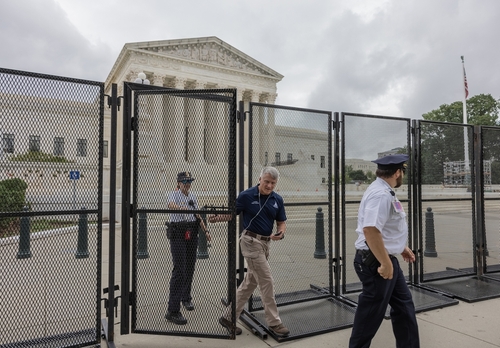The Supreme Court just handed religious Americans a major win. By directing a New York court to reconsider its abortion coverage mandate, the justices reinforced the principle that faith-based organizations shouldn’t be forced to violate their core beliefs.
Supreme Court Overturns New York’s Abortion Mandate Ruling
The U.S. Supreme Court has ordered a lower court to reconsider a religious challenge to New York state’s requirement that employer-provided health care plans include abortion coverage. This ruling represents a significant development for religious liberty advocates who have fought against the 2017 regulation, arguing it violates their First Amendment rights to free exercise of religion.
The case centers on a coalition of Catholic organizations, including nursing homes and charitable groups, who maintain that New York’s mandate forces them to violate core religious beliefs. The state’s regulation includes a religious exemption, but it applies only to organizations that primarily serve people of their faith, excluding many Catholic ministries that serve the general public regardless of religious affiliation.
🚨 JUST IN: The U.S. Supreme Court has UNANIMOUSLY ruled in favor of nuns fighting New York’s abortion mandate, confirms that states cannot legally force religious organizations to pay for abortions.
This is HUGE!!! pic.twitter.com/ro8rSyDLs7
— Proud Elephant 🇺🇸🦅 (@ProudElephantUS) June 16, 2025
Religious Organizations Celebrate Victory
Noel Francisco, the attorney representing the Catholic organizations in this case, expressed optimism following the Supreme Court’s decision. “Religious groups in the Empire State should not be forced to provide insurance coverage that violates their deeply held religious beliefs,” Francisco stated, adding that he hopes “New York will finally get the message and stop discriminating against religious objectors.”
The Becket Fund for Religious Liberty, which has supported the challenge, characterized New York’s mandate as an attempt to “browbeat nuns into paying for abortions for the great crime of serving all those in need.” Eric Baxter, vice president and senior counsel at Becket, noted that “for the second time in four years, the Supreme Court has made clear that bully tactics like these have no place in our nation or our law.”
The U.S. Supreme Court has UNANIMOUSLY ruled in favor of nuns fighting New York’s abortion mandate, confirms that states cannot legally force religious organizations to pay for abortions. pic.twitter.com/CpVWOrKrnO
— JOSH DUNLAP (@JDunlap1974) June 16, 2025
Legal Precedent and Future Implications
The Supreme Court’s decision to vacate the previous judgment and remand the case follows its recent ruling in Catholic Charities v. Wisconsin, which addressed religious discrimination in tax exemption policies. This pattern suggests the Court continues to reinforce protections for religious organizations against government mandates that conflict with their faith principles.
New York’s Court of Appeals had previously rejected the religious groups’ challenge in May 2024, ruling that the regulation and its religious exemption did not violate the free exercise clause. State lawyers defended the exemption as “a denominationally neutral accommodation” based on objective criteria, but the Supreme Court’s action indicates this reasoning requires further scrutiny under current religious liberty precedents.
The Supreme Court has previously ruled in favor of religious exemptions in similar cases, including a 2021 ruling involving a Catholic Church-affiliated group in Philadelphia and a 2020 ruling regarding the Affordable Care Act’s birth control coverage. This consistent pattern of decisions strengthens the position of religious organizations seeking exemptions from government mandates that conflict with their beliefs.

